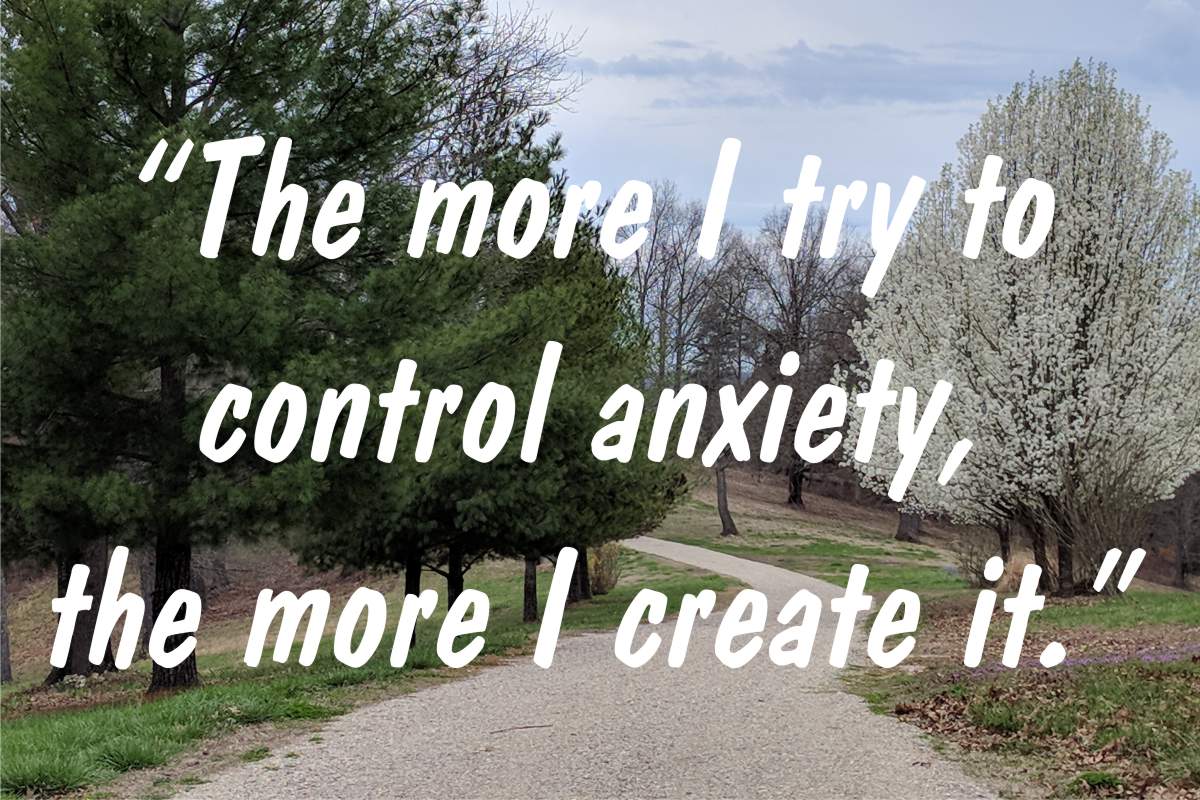










Popular Articles
Crazy-Makers: Dealing with Passive-Aggressive People
Why Are People Mean? Don't Take It Personally!
Struggling to Forgive: An Inability to Grieve
The Secret of Happiness: Let It Find You (But Make the Effort)
20 Steps to Better Self-Esteem
7 Rules and 8 Methods for Responding to Passive-aggressive People
What to Do When Your Jealousy Threatens to Destroy Your Marriage
Guide to How to Set Achieveable Goals
Catastrophe? Or Inconvenience?
Popular Audios
Audio Version of Article: Crazy-Makers: Passive-Aggressive People
Audio Version of Article: Why Are People Mean? Don't Take It Personally!
15 Coping Statements for Panic and Anxiety
by Monica A. Frank, PhD
Coping statements can be part of your strategy to manage anxiety. What are coping statements? When you struggle with anxiety you are usually engaging in fearful and/or inaccurate self-talk which tends to increase the anxiety. The purpose of coping statements is to counter this anxious self-talk.
This series provides an explanation of some common coping statements. The best way to use them is to identify the ones that are most calming to you and repeat them over and over when you are anxious sort of like a mantra. Combining a single statement with taking slow breaths can be particularly helpful.
Coping statement #12: “The more I try to control anxiety, the more I create it.”
Trying to be in control can create anxiety. In karate I was taught that the best state for a response is a relaxed state. The more a person tried to control a response the less they were able to do it. In sports this is often known as “flow” or “being in the zone.” The same is true of anxiety. The more you try to control it the worse it becomes because control itself is tension. Tension, then, adds to the other symptoms of anxiety.
Reasons control creates anxiety and what to do:
1) Relaxation-induced anxiety. Sometimes when my clients were learning to manage anxiety, they tried too hard to control it. They worked hard at the assignments including the breathing and relaxation methods but were focused on the outcome. Some of them experienced what we refer to as “relaxation-induced anxiety.” This anxiety can occur for different reasons but one reason is trying to control the anxiety. They complained that the relaxation just made them more anxious. By focusing on whether they were being successful with the relaxation, they actually created more anxiety.
If a person has relaxation-induced anxiety, the best approach is to slowly acclimate to relaxation without the expectation of immediately controlling the anxiety. Instead of trying to relax, focus on learning to relax. Learning is a process that takes time. Too often, people have been told “just relax!” and as a result they believe that relaxation is something that should be easy. But it is not—it is a skill that takes time to learn just like any other skill.
2) Fear of being out-of-control. Some people are worried that if they let go of their control, they will be completely out of control. They are fearful of their emotions taking over their responses and not having a choice in how they act. This fear is not realistically based on how our bodies behave. Even with strong emotions or anxiety we still have the ability to make decisions about our actions. In addition, relaxation does not induce loss of control of emotions. Instead, it increases control. If you have this type of fear, the more you reassure yourself that relaxation doesn't cause loss of control and gradually get used to the feelings of relaxation the more successful you can be at using these methods.
3) Need to be in control. The need to be in control is different from the fear of being out of control in that it tends to be a perfectionistic lifestyle that creates demands. These demands create tension which cause an almost chronic level of low level anxiety. Then when an unexpected event occurs the anxiety can quickly exacerbate to high levels. For these individuals it is necessary to learn to let go of the perfectionistic control. The article When the Need for Control Gets Out of Control provides some information on how to do this.
Permission to reprint this article for non-commercial use is granted if it includes this entire copyright and an active link.














